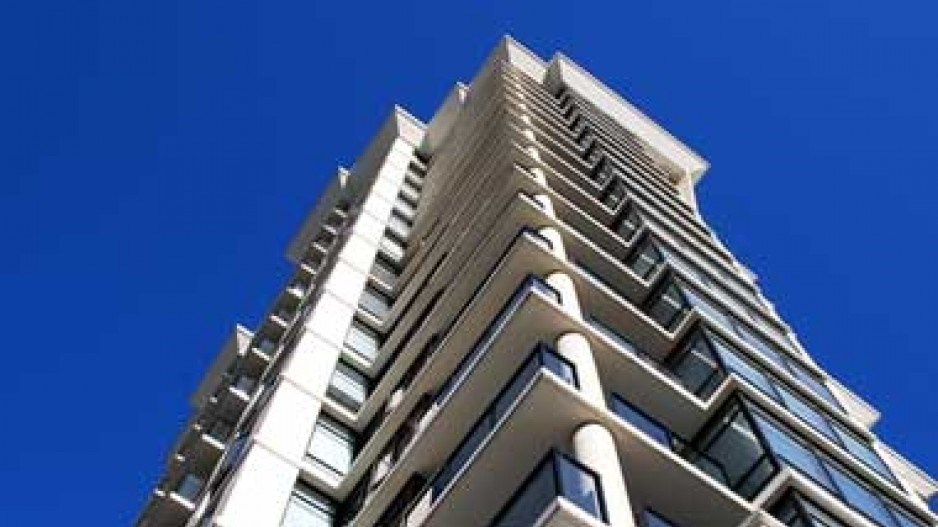Competition to buy revenue-generating real estate in Vancouver has driven capitalization rates to all-time lows and made the properties less desirable for investors.
Capitalization (cap) rates have been dropping in most North American markets but none more so than in Vancouver. A capitalization rate is the ratio between an asset’s net operating income and its original price. For example, a $1 million property that generates $100,000 annually after expenses would give the owner a 10% cap rate.
“If we’re worried about cap rates being low everywhere, we have to be really worried about Vancouver because they’re the lowest here [compared with other parts of North America],” San Francisco-based president and CEO of Grosvenor Americas, Andrew Bibby, told the Vancouver real estate forum April 11. Bibby said other North American cities offer worthwhile investment opportunities, but extremely low cap rates “make Vancouver a hard place to justify investment.”
An Avison Young Commercial Real Estate report released in March estimated cap rates for Vancouver multi-family buildings at less than 3%.
“With current cap rate compression potentially eclipsing future income growth, private investors need to consider what the market can bear in terms of rent increases,” Avison Young warned in its report.
Avison Young principal Bob Levine said Vancouver office, retail and industrial properties also have the lowest cap rates that he can remember. One explanation is that cap rates tend to follow mortgage interest rates, and Canadian mortgage rates hit a record low in January.
For example, the Bank of Montreal announced in January a five-year fixed-rate mortgage of 2.99% – the lowest advertised rate ever for such a popular mortgage term by any major Canadian bank.
“The reason Vancouver’s cap rate is lower than other cities is that it is so much harder to develop in Vancouver due to the lack of land,” Levine said.
“If you look back over the past 30 years in Canada, Vancouver’s cap rates have been lower than anybody else’s regardless of whether it’s a boom or a recession.”
The limited number of transactions involving Vancouver office towers makes it difficult to pinpoint the cap rate for that class of real estate, but Levine estimated that prime downtown office space in Vancouver will likely sell for a cap rate of between 5% and 5.5%. He said six months ago that cap rate was likely between 5.25% and 5.75%. Levine added that the cap rate of prime retail properties such as Oakridge Centre or Coquitlam Centre is likely now between 5.25% and a 5.75%. He believes that two years ago those malls would have carried a 7% cap rate.
Industrial real estate properties have followed the same trend, said Ron Bagan, Colliers International executive vice-president of industrial properties.
“The trouble with cap rates is that you really have to give a range because there are so many factors that affect the rate: location, quality – whether it is A, B or C Class – if it’s leased fully, what is the strength of the covenant of the tenants? what is the flexibility of the building and what are the terms of the leases?”
Bagan then estimated that prime industrial properties would for the first time sell with a cap rate of less than 6%. Those same properties would likely have carried an 8% cap rate in 2005 and about 9% in 2000.
“We are definitely lower in Vancouver for cap rates,” he said. “There’s a lack of available supply and a tremendous amount of local private money that competes with institutional money. Private money does not get as hung up on cap rates. They’re looking for something that they can touch and feel.”
The Beedie Group’s successful experiment building and selling industrial strata units means that many more Vancouver industrial property users now own their properties than did a decade ago, which means there are fewer tenants.
But Bagan is not concerned that low cap rates will scare investment away. “It shows that demand is high. People want to put their money here,” he said. “With the incredible lack of available land for industrial real estate development in Vancouver, there will always be high demand for existing properties.” •




